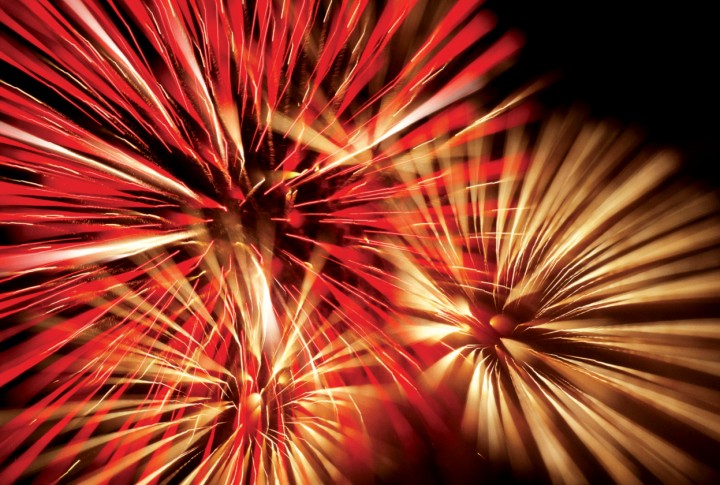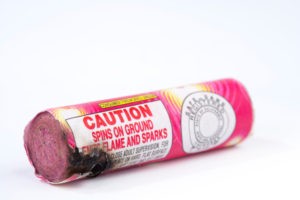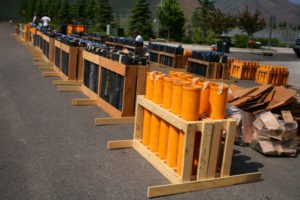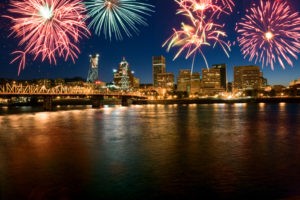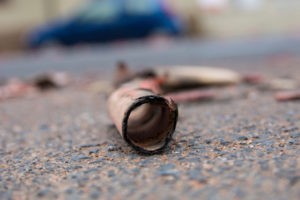For many of us, sitting back with friends and family watching an awesome fireworks display is a major highlight of our Independence Day celebrations. To have these firework shows go off without a hitch, it takes particular planning, lots of creativity, and most importantly, proper safety precautions to be set in place. Whether you are a professional pyrotechnics operator or the resident fireworks guru, it is of the utmost importance to keep some of these important firework safety tips in mind.
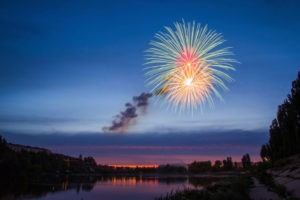
1. For large productions, familiarize yourself with state and local regulations. Follow the necessary procedures in order to obtain permits, licenses, etc., all of which can vary from state to state. You may be required to submit an application regarding your show to local authorities addressing a number of items, including who your operator is and the certifications/qualifications they hold.
2. Choose a display area that is clear of every possible obstruction. If you are arranging a large event, make sure establishments such as nursing homes, hospitals, or correctional facilities nearby, had been notified of the event with ample notice.
3. Make sure your spectators will be at a proper distance from your display. For big productions, consider setting up security measures to ensure the audience is kept at a safe distance out of the fallout zone. The National Fire Protection Association distance standard recommends keeping a minimum distance of 420 feet from 6-inch vertical mortars, but some professional pyrotechnics recommend 100 feet per mortar inch.
4. Make sure there is a substantial water source readily available at the site. Additionally, have a first aid kit (or EMS units) at the ready.
5. Know where and when you can legally purchase fireworks. Illegal fireworks do not meet safety or quality standards and can be extremely dangerous, as they are often highly sensitive to heat and shock. After purchasing, make sure to store them in a cool, dry place until just before setup.
6. Make sure to read the label on each firework. They will tell you exactly what hazards are presented (e.g., EMITS SHOWERS OR SPARKS) and proper handling procedures.
7. Do not stand over mortars when setting up. No matter how many safe guards are put in place, fireworks are still explosives that can be unpredictable.
8. Inspect each firework for anything that may compromise their quality and performance. If you notice any damage, contact the supplier for instruction, as it could malfunction.
9. If your 4th of July festivities include alcohol consumption, save it until after the show.
10. Most firework-related injuries affect the head and hands, so it is important to wear safety glasses, ear plugs/muffs, and gloves during the show. It is also recommended to wear long-sleeve shirts and pant made of flame-resistant material.
11. Do not ever attempt to relight dud fireworks.
12. Have the ability to communicate with those around you. During large-scale productions, you may be in contact with event coordinators and assistants, so ensure that a clear line of communication is kept open at all times.
13. Keep an eye on the weather. Wind can sometimes become an issue with fireworks, and if it suddenly shifts during the show, you may have to either change which direction you are lighting or subside all together. If it begins to rain, the show can go on provided the fireworks are kept bone dry until they are lit.
14. Keep fireworks away from children. While fireworks like sparklers may seem relatively harmless, they accounted for 41% of emergency room firework injuries in 2013, and nearly 80% of them were children under five.
15. Pets should be kept inside during fireworks displays, as the noise can induce severe anxiety in animals.
16. Never, ever leave unused fireworks or debris at the site. After waiting at least 15 minutes, perform a thorough inspection to make sure everything is cleaned up.
Sources:
Bureau of Alcohol, Tobacco, Firearms and Explosives. Fireworks Safety and Security
National Fire Protection Association. Fireworks Fact Sheet
Occupational Safety and Health Administration. OSHA Safety Guidelines for Display Fireworks Sites
Texas Municipal League Intergovernmental Risk Pool. Fireworks Display Safety

